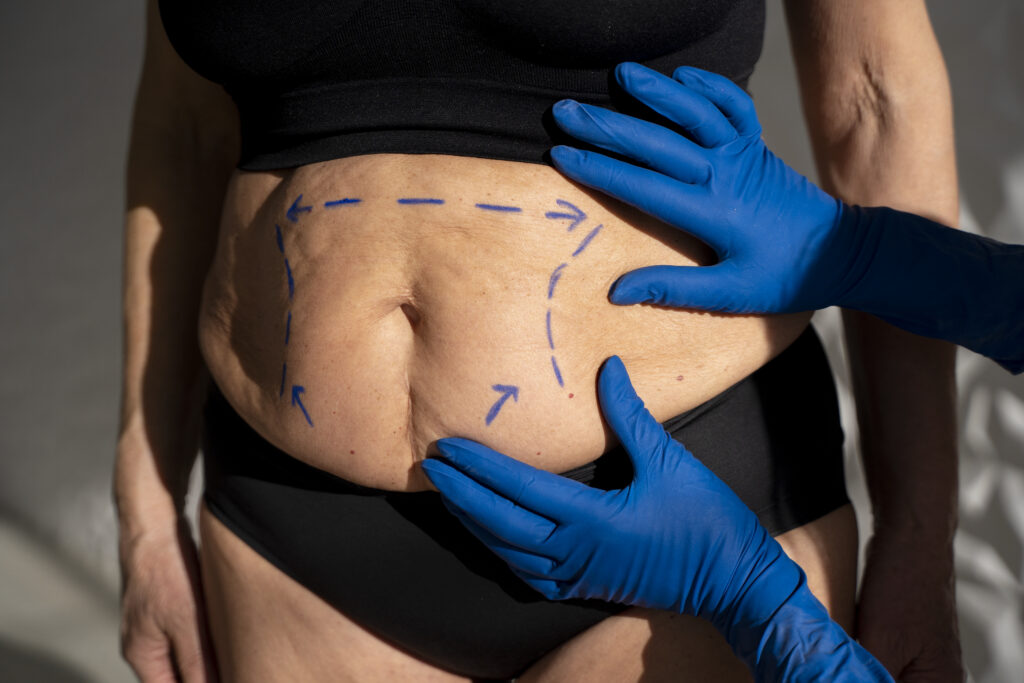Medical doctors and Surgeons
Post-Bariatric surgery: restoring physical form and quality of life
Post-bariatric surgery is not merely a cosmetic procedure; it represents a holistic improvement journey for the patient, addressing physical, psychological, and relational aspects. «Patients regain their body image, improve their self-esteem, and enhance their quality of life, ” says Dr. Jacopo Frattaroli, specialist in Reconstructive and Aesthetic Plastic Surgery, PhD “Sapienza” University of Rome, emphasising the importance of a multidisciplinary approach and ongoing support for long-term success.
Post-bariatric surgery proves to be a crucial resource for patients who, after significant weight loss, face aesthetic and functional challenges caused by excess skin and adipose tissue. Dr. Jacopo Frattaroli, a plastic surgeon specialising in this field, has explored patients’ primary concerns, eligibility criteria, and the challenges encountered in the postoperative process.
Most Requested Post-Bariatric Surgery Procedures

“Post-bariatric surgery includes all procedures aimed at restoring the shape and silhouette of specific body areas,” explains Dr. Frattaroli, noting that the most common procedures are abdominoplasty and mastopexy.
These surgeries rank among the top five most requested in reconstructive plastic surgery, especially in the United States. “Following these are procedures like arm lifts (brachioplasty), thigh lifts, and buttock lifts, though they are less frequently requested.”
To be eligible for post-bariatric surgery, patients must meet certain health conditions and maintain stable weight: «Eligibility is based on stable weight for at least six months, a BMI below 30, and the absence of significant comorbidities. It is also important to evaluate optimal haemoglobin levels and ensure proper iron reserves. «These procedures often involve large tissue dissection and the potential for significant blood loss.»
Maintaining Results
Post-surgery, maintaining the results depends on careful wound care and the use of appropriate medical supports. However, in the long term, nutrition and physical activity play a crucial role. Without a proper postoperative regimen, there is a risk of losing the benefits achieved. For example, in patients prone to significant weight gain, reverting to unhealthy habits may lead to «fat accumulation returning. Even if excess skin has been removed.»
One of the most delicate aspects of the surgical journey is managing patients’ expectations. «Expectations must always be personalised», says Frattaroli, emphasising that results can vary significantly. It is essential to inform patients that «they should not expect to return to the silhouette they had in their youth». They can achieve «excellent results by adjusting the body’s shape to their age and physical condition».
Psychological and Motivational Benefits
One of the most significant outcomes of post-bariatric surgery is the positive impact on the patient’s quality of life. «The vast majority of these patients are highly motivated because the aesthetic and functional discomfort they experienced before surgery was often substantial.»
Removing excess skin, for example, can alleviate issues like recurring skin folds or sores, improving overall health and boosting self-esteem.

Frattaroli notes that, in his experience, patients «tend to maintain a healthier lifestyle after surgery». Thanks to improvements not only in their appearance but also in their psychological and social well-being. «Recently, we published an article where we assessed the psychological aspects of patients post-surgery. It was shown that improvements occur in many areas: social, sexual, and general. The surgery motivates them to exercise more, go out, and lead a more regular life.»




































